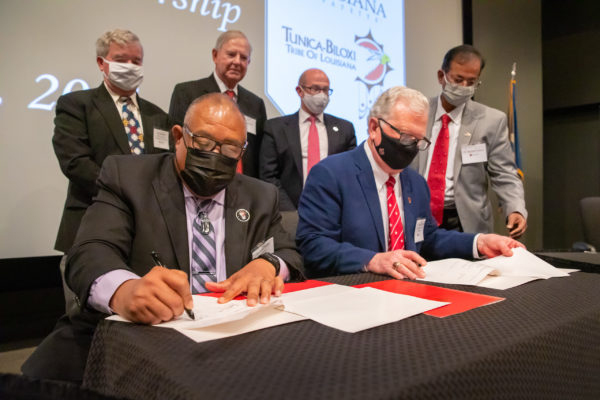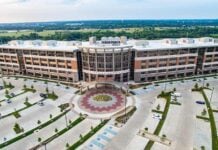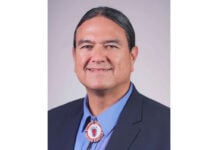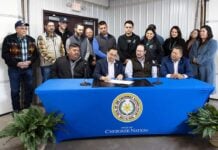
A partnership between the University of Louisiana at Lafayette and the Tunica-Biloxi Tribe of Louisiana will empower the state’s green energy landscape. The focus on strengthening Louisiana’s renewable and traditional energy sectors is among a host of areas the new partnership will address. Other areas will include economic, workforce, and community development; public health; and computing and information technology. The partnership will advance the tribe and UL Lafayette’s shared mission of improving Louisiana. It will also provide crucial resources for the tribe’s 1,500 citizens and their families, both in Louisiana and around the country. Dr. Joseph Savoie, UL Lafayette President, and Marshall Pierite, Tunica-Biloxi Tribal Chairman, recently formalized the partnership during a signing ceremony. The event was held at the LITE Center in UL Lafayette’s Research Park.
“Collaborations such as these are essential to our state. By aligning resources toward a common mission, this partnership between the University and the Tunica-Biloxi Tribe will strengthen the state’s economic landscape today and nurture future economic growth,” Savoie said. “This collaboration is good for the University and for the Tunica-Biloxi Tribe. Ultimately, it’s the people of Louisiana who will benefit.”
“This mutually-beneficial partnership will not only open doors for our tribe, but allow us to make an impact on the development of our state and region,” Pierite said. “From public health to energy and more, we are working together to address some of the most critical topics in our region. We are extremely grateful to UL Lafayette for their collaboration and look forward to seeing what we can accomplish together.”
The memorandum of understanding signed “creates an environment of mutual support” that advances economic development for the tribe through the university’s applied research and workforce development programs. “We are a public university, and the work being done here is for the public good,” said Dr. Ramesh Kolluru, UL Lafayette’s Vice President for Research, Innovation and Economic Development. “This partnership is an opportunity to translate our research and intellectual capacity into tangible outcomes that will benefit society.”
The partnership includes research collaborations, technical assistance, consultation, training, and workforce development in a number of economic areas and industries, including traditional and sustainable energy resources. “One of the focal areas of this partnership will capitalize on the university’s longstanding role as a leader in energy research to assist the tribe as it explores both conventional and alternative energy sources,” Kolluru added.
Additional collaborations will focus on economic and community development through entrepreneurship, business cultivation, financial literacy, and hospitality management. The partnership will also foster collaboration in the fields of public, mental and behavioral health, and other life sciences, and through information technology, including broadband applications such as telehealth and e-learning.
The agreement also seeks to enhance support for traditional students and continuing education and lifelong learning opportunities for adult learners of the tribe.












































